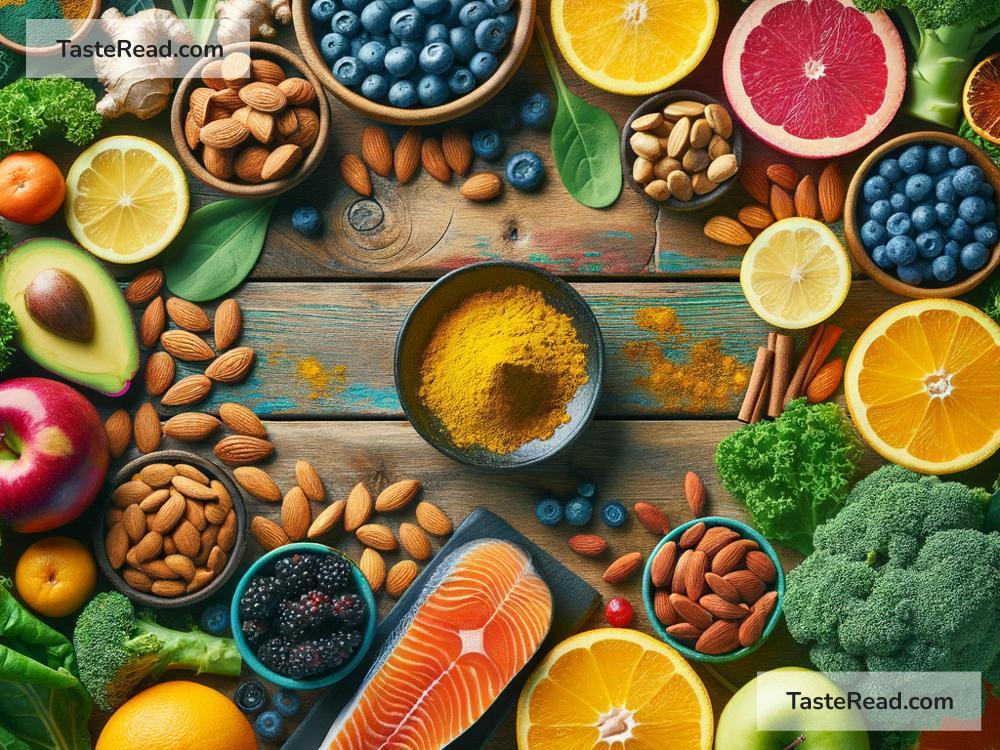Foods for Reducing Adipose Inflammation: Simple Tips for a Healthier Life
Inflammation in the body is a common issue that can lead to various health problems, including heart disease, diabetes, and weight gain. One specific type of inflammation is adipose inflammation, which occurs in fat tissue. When fat tissue becomes inflamed, it can disrupt normal bodily functions and make it harder to lose weight or stay healthy. The good news is that the foods we eat can play a big role in reducing inflammation in fat tissue. By choosing the right foods, you can help your body fight off inflammation and feel better overall.
In this blog post, we’ll talk about foods that can reduce adipose inflammation in simple terms. These foods not only taste great but also support a healthy lifestyle!
Why Does Adipose Inflammation Matter?
Before diving into the foods, let’s briefly understand why adipose inflammation matters. Fat tissue isn’t just where the body stores extra energy; it’s also an active part of your body that impacts hormones and metabolism. When fat tissue becomes inflamed, it can produce harmful chemicals called cytokines, which contribute to chronic inflammation throughout the body. This creates a vicious cycle—more inflammation leads to worse health outcomes, including difficulty losing weight.
The key to reducing adipose inflammation is tackling its root cause, and one of the best ways to do this is through your diet. So, what foods can help fight this inflammation and promote a healthier fat tissue environment? Let’s find out!
1. Fruits and Vegetables: Nature’s Anti-Inflammatory Superstars
Fresh fruits and vegetables are full of antioxidants, vitamins, and minerals that help reduce inflammation in the body. They also contain fiber, which helps balance blood sugar levels—an important factor for reducing adipose inflammation.
Some of the best fruits and vegetables for fighting inflammation are:
- Berries: Blueberries, strawberries, and raspberries are packed with antioxidants called anthocyanins. These compounds help reduce inflammation and improve the health of fat cells.
- Leafy Greens: Spinach, kale, and Swiss chard have high levels of vitamins A, C, and K, which are powerful anti-inflammatory agents.
- Cruciferous Vegetables: Broccoli, cauliflower, and Brussels sprouts contain compounds like sulforaphane, which fight inflammation and support fat tissue health.
Aim to eat a colorful variety of fruits and vegetables every day to maximize anti-inflammatory benefits.
2. Healthy Fats: Fats That Work for You, Not Against You
Not all fats are bad! In fact, certain healthy fats can help reduce inflammation in fat tissue. The key is to choose fats that are unsaturated and come from natural sources.
- Fatty Fish: Salmon, mackerel, and sardines are high in omega-3 fatty acids. Omega-3s are known to fight inflammation and improve the function of fat cells.
- Avocados: Rich in monounsaturated fats and antioxidants, avocados help lower inflammation and support overall health.
- Nuts and Seeds: Walnuts, almonds, chia seeds, and flaxseeds are great sources of omega-3s and other healthy fats that combat adipose inflammation.
When cooking, opt for healthy oils like olive oil instead of processed vegetable oils, which can contribute to inflammation.
3. Whole Grains: Say Goodbye to Processed Carbs
High amounts of refined carbs, like white bread and sugary snacks, can increase inflammation and make adipose tissue less healthy. Whole grains, on the other hand, are full of fiber and nutrients that support fat tissue health.
- Examples of Whole Grains: Quinoa, brown rice, oats, and whole-grain bread are great choices to promote an anti-inflammatory diet.
- Why Fiber Matters: Fiber from whole grains helps regulate blood sugar levels, which can prevent spikes that lead to inflammation.
Switching from processed carbs to whole grains is a small change that can make a big difference over time.
4. Spices and Herbs: Flavor That Heals
Did you know spices and herbs can have powerful anti-inflammatory properties? Adding these to your meals not only makes them delicious but also helps fight inflammation in fat tissue.
- Turmeric: This bright yellow spice contains curcumin, a compound known for its strong anti-inflammatory and antioxidant effects.
- Ginger: Ginger is another powerful anti-inflammatory that can reduce swelling in fat tissues.
- Cinnamon: Known for balancing blood sugar levels, cinnamon also helps reduce adipose inflammation.
Experiment with these spices in your cooking to add a healthy boost to your meals.
5. Anti-Inflammatory Beverages: Drink Your Way to Health
What you drink matters, too! Certain beverages can help fight inflammation and improve the health of your fat tissue.
- Green Tea: Packed with antioxidants called catechins, green tea supports fat tissue health and reduces inflammation.
- Water: Staying hydrated is crucial to flushing out toxins and keeping your body working efficiently.
- Vegetable Smoothies: Blend spinach, kale, and berries for an anti-inflammatory boost.
Avoid sugary drinks and sodas, as they can make inflammation worse.
Final Thoughts
Reducing adipose inflammation doesn’t require cutting out all the foods you enjoy or following a complicated diet. Instead, it’s about making healthier choices, one step at a time. By adding more fruits, vegetables, healthy fats, whole grains, spices, and anti-inflammatory beverages to your diet, you can support your body’s fight against inflammation and promote better health.
Remember, small changes lead to big results. Start by swapping out processed foods for fresh, whole ingredients and enjoy the benefits of a healthier, happier body. Your fat tissue—and the rest of your body—will thank you!


